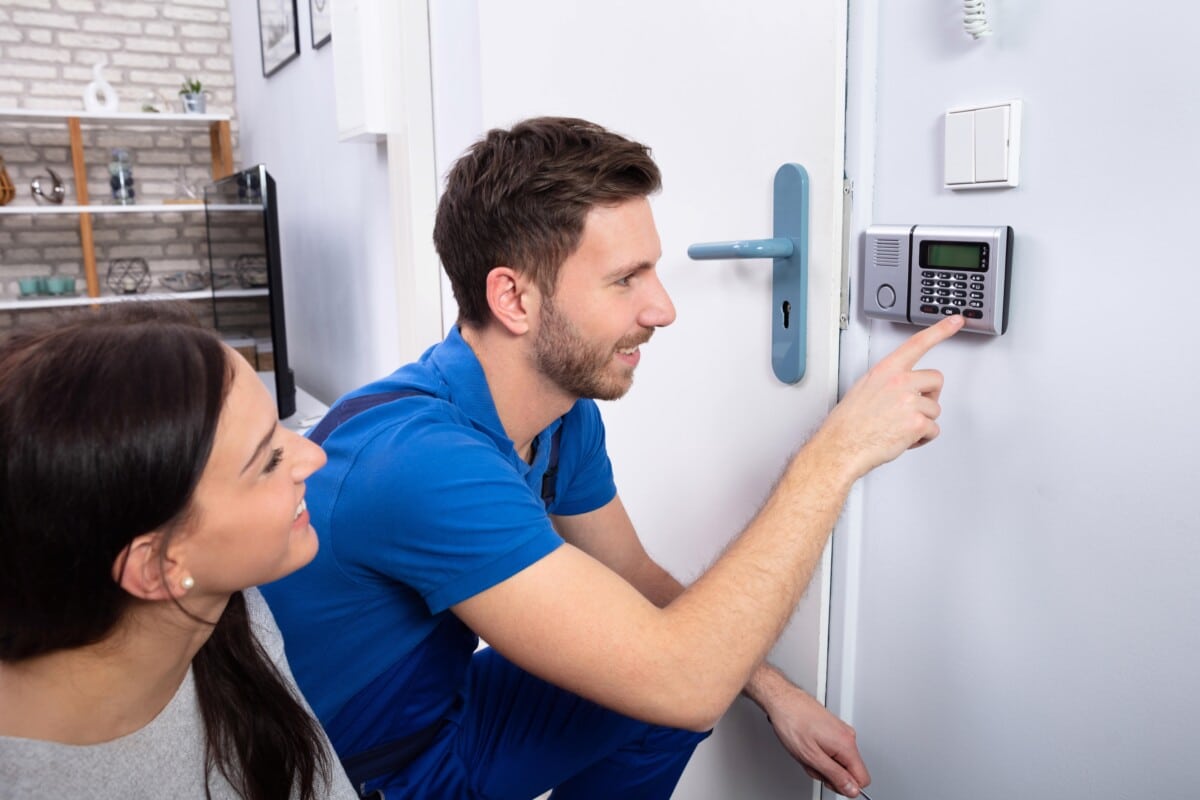Article At A Glance
- A robust home alarm system must be able to alert the homeowner or the relevant authorities upon intrusion detection.
- Choosing the right system involves deciding on its key components based on your understanding of your security needs.
- Professional home alarm installation companies can save you from costly mistakes.
Despite the efforts of security agents around the country, burglaries remain a fact of life in the U.S. Various estimates point to more than 5,000 burglaries nationwide daily.
Many homeowners have resorted to installing a burglar alarm or surveillance system as part of their overall home security setup to help keep their properties safe. However, installing these systems can be challenging because so many options exist.
Stark Security, the premier choice for home security system installations in Chicago, IL, has compiled a comprehensive guide to help you choose your alarm system.
Understand the Distinction Between a Home Alarm System and a Home Security System
A home security system provides the wider infrastructure you have put in place to protect your home. Components in the infrastructure will include security cameras, intrusion detection systems, motion sensors, and more.
The core function of a home security system includes monitoring and recording activities around your home. But what use is the home security system if it only works to record break-ins or other suspicious activity?
Sure, it can help apprehend criminals in some cases. However, you’re better off with a system that can either scare off intruders or alert authorities when they choose to proceed with their nefarious activities. That’s where the home alarm system comes in.
The home alarm system forms part of your home security system. It will alert you or the authorities when an intruder tries to access your home.
These systems feature sensors, audible alarms, and a notification system that delivers alerts to you, the homeowner, or a monitoring service.
Additional Read: Top Benefits of Alarm Installation
Determine Your Needs
Before shopping for any system, you must evaluate your home’s security vulnerabilities.
• Do you have a detached garage? You’ll need to install motion detectors and cameras inside it and connect everything to a loud alarm system.
• Do you have a wooded backyard that may attract potential burglars? You’ll need a home alarm system connected to weatherproof outdoor cameras.
• If you have ground-floor windows, you must install glass-breakage sensors connected to loud sirens.
• If you receive deliveries regularly to your home, you may need to install a video doorbell camera with an alarm system to ward off porch raiders.
• If you live in an area with a high crime rate, you may need to include a panic button in your home alarm system.
• Carefully note your security needs, and it will be easier for you to understand the composition of your home alarm system.
Decide on a Budget
Many homeowners feel unprepared for the disparity in pricing regarding home alarm and security systems. Since they comprise so many moving parts, it’s easy to rack up a few thousand dollars while setting up the system. But installing a home alarm system on a shoestring budget is also possible.
When weighing up a budget for your home alarm system, you’ll need to factor in the cost of the hardware (and the installation) and the cost of monitoring the system. You’ll need to pay monthly fees for professional monitoring systems. The alarm system is incomplete if no one on the other end can act on any triggered alarms and send assistance.
Choose Between Professional Monitoring or Self-Monitoring
Perhaps before you set your budget, you have to decide how you want to monitor the alarm system. Professional alarm monitoring hooks up your home to a monitoring station.
The station staff will evaluate every alert and dispatch emergency services when your home alarm system sends an alert that warrants it.
On the other hand, self-monitoring means the alarm system will send you an alert, and you’ll then contact the police or other emergency services on your own. Professional monitoring costs more, but it takes the burden of monitoring your home off you and reduces the risk of oversight.
Choose Between a Wired or Wireless System
A wired home alarm system is more reliable. There’s no risk of an intruder jamming signals or causing interference. However, they cost more and may not be the best choice for homes with small children or pets.
Wireless systems offer a cheaper, easier-to-install option, but sophisticated burglars may succeed in shutting them off. If you choose wireless, seek assurance about the system’s resilience to sophisticated attacks.
Decide on the Type of Control Panel
How do you want to control your alarm system? The control panel is where you’ll arm or disarm your home alarm system, check its status, change the settings, and more.
Simpler control panels include keypads mounted in a corner of your home. More sophisticated systems may have touchscreen displays with numerous whistles and bells. Some will allow you to take the system via a mobile app.
Consider Future Expandability
As your home situation changes, you may need to add more components to your home alarm system. For example, you may add a baby monitor or set up monitoring around your new outdoor deck or swimming pool.
Choosing a system that will allow you to expand easily when necessary is always a good idea.
Decide Between Professional and DIY Installation
Professional installers will walk you through choosing the components of your home alarm system and recommend the ideal setup to ensure proper protection. However, you must agree on a schedule and be open to letting someone into your private space. Additionally, you’ll have to pay the cost of the installation.
With DIY installation, you can save money and complete the installation on your schedule. However, this option creates a high probability of making mistakes. Installing more robust systems with many components without professional experience is also hard. Most DIY enthusiasts only use peel-and-stick systems, which may not be ideal for your security needs.
Compare Quotes and Terms From Different Companies
If you hire professional installers, you must avoid hiring the first security company you can find. Get quotes from multiple companies and compare prices for the features you want for your home alarm system.
Since your home alarm system plays a highly integral role in your family’s safety, it’s important that you carefully scrutinize the company. You have to be careful who you let into your home. You also don’t want to hire a company you can’t trust to install a home alarm system with no loopholes.
Read reviews from past customers for each company you’re considering to get a feel for its reputation. Check for complaints about (or praise for) its service on reputable third-party platforms like the Better Business Bureau. Don’t forget to confirm licenses.
If you elect to go with professional monitoring for your home alarm system, take your time to read the contract for the monitoring for each provider before you sign anything. Do they monitor around the clock? Can you pause your subscription when necessary?
Talk to Stark Security Inc. for Personalized Guidance and Professional Installation of Your Home Alarm System
A robust home alarm system can save you from heartache, steep financial loss, and worse. However, the nuanced nature of the system setup makes it challenging for the average homeowner.
At Stark Security Inc., we have extensive experience making the home alarm setup process straightforward for homeowners. We’ll carefully evaluate your needs before designing and installing a home alarm system that ticks all the right boxes.
Call Stark Security Inc. in Chicago, IL, today at 773-455-1220 to schedule a consultation.














